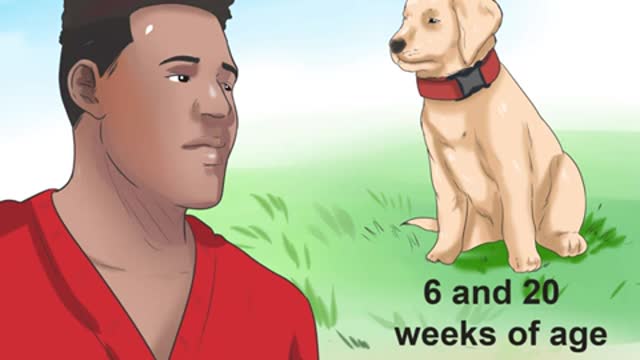Premium Only Content

EARLY SYMPTOMS OF PARVO
Canine parvovirus infection also called “parvo” is a highly contagious gastrointestinal disease with a high mortality rate. The virus is common in puppies. Experienced dog owners and breeders often panic when they suspect one of their dogs has parvo they know how quickly the condition advances and how lethal it can be. If your dog has parvo, getting to a veterinarian quickly can increase the odds of survival, but the symptoms of parvo can be confused with the symptoms of other canine diseases, including coronavirus infection, bacterial hemorrhagic enteritis, coccidiosis, and hookworm infestation.
Recognizing the Symptoms of Parvo Consider your dog’s age.
Parvo typically occurs in puppies between six and twenty weeks of age, and 85% of all infections occur in dogs under one year old. Puppies are most susceptible because they have a very high number of rapidly dividing cells in their stomachs and intestines these cells are the primary target of the parvovirus. If your dog is older, parvo is unlikely though certainly not impossible. If your puppy’s mother was not vaccinated against parvo, it’s possible for the virus to appear even earlier, in the first few weeks of life. Factor in your dog’s breed.
Parvo is more likely in certain breeds, including Rottweilers, American Pitbull Terriers, Doberman Pinschers, and German Shepherds. If your dog belongs to one of these groups, be particularly vigilant in watching for parvo. Monitor your dog’s behavior.
In general, the first sign of a parvo infection is lethargy. Your puppy may become less active, eventually retreating to a corner and staying put. This lethargy is typically followed by weakness and loss of appetite. The signs are rapidly progressive with a quiet dog quickly becoming critically ill with foul, bloody diarrhea. Watch for fever.
Dogs with parvo usually develop a fever between 104 and 106 degrees Fahrenheit 40–41ºC. Pay attention to vo Canine parvovirus infection also called “parvo” is a highly contagious gastrointestinal disease with a high mortality rate. The virus is common in puppies. Experienced dog owners and breeders often panic when they suspect one of their dogs has parvo they know how quickly the condition advances and how lethal it can be. If your dog has parvo, getting to a veterinarian quickly can increase the odds of survival, but the symptoms of parvo can be confused with the symptoms of other canine diseases, including coronavirus infection, bacterial hemorrhagic enteritis, coccidiosis, and hookworm infestation.
Heal your dog naturally
here >>> https://bit.ly/3pUxWRk
-
 1:04:08
1:04:08
Russell Brand
3 hours agoDeep State Exposed: Veterans in the Crosshairs – SF518
73.1K145 -
 DVR
DVR
Game On!
2 hours agoNFL Wildcard Weekend FINALE! Plus, can Notre Dame actually beat Ohio State?
3.54K2 -
 1:00:13
1:00:13
The Dan Bongino Show
6 hours agoThe FBI Warns Of A Grave Threat, But Will Anyone Believe Them? (Ep. 2399) - 01/13/2025
657K1.25K -
 1:23:10
1:23:10
The Rubin Report
3 hours agoMark Zuckerberg Makes Joe Rogan Go Quiet with Never-Before-Told Details of Biden’s Lies
56.2K59 -
 1:01:54
1:01:54
Grant Stinchfield
2 hours ago $0.63 earnedBe Wary of Viral CA Wildfire Conspiracies... But the Anomalies Can't be Ignored!
8.91K -
 LIVE
LIVE
The Dana Show with Dana Loesch
2 hours agoThe Dana Show | 1-13-25
602 watching -
 1:31:12
1:31:12
The Shannon Joy Show
5 hours ago🔥🔥The LA Fires & OMNI War. The Enemies Are Within & The Rules Have Changed.🔥🔥
13.3K12 -
 2:58:58
2:58:58
Wendy Bell Radio
9 hours agoStone Cold Incompetent
77.3K88 -
 2:04:21
2:04:21
LFA TV
1 day agoHUNTERS NOW THE HUNTED! | LIVE FROM AMERICA 1.13.25 11am
47.1K16 -
 1:24:35
1:24:35
Caleb Hammer
3 hours agoMost Childish Couple I've Ever Had On Financial Audit
21.3K3